VLGA Response: Australian Citizenship Ceremonies Code (the Code)
The overwhelming response from councils to the federal government’s proposed changes to the Code is that the dates for hosting citizenship ceremonies remain at the discretion of each council.
The response to the proposal that a dress code apply for ceremonies is that this remain at the discretion of each council, as the suitability or appropriateness of attire worn at ceremonies has not been an issue of concern for councils in the past.
In response to other matters raised within the proposed Code, the VLGA makes the following observations.
Most councils, regardless of their location, have experienced very little difference in the number of conferees on significant dates such as Australia Day (January 26).
There are potential consequences for the Code effectively building the timing of the conduct of ceremonies around MP's and raises questions such as how many need to be available for a ceremony to be held? How many need to be Federal and how many State? What happens to the waiting list if ceremonies aren't held because MP's have got other/better things to do?
Council citizenship ceremonies are demand driven, primarily by the needs and availability of the conferees and their families and the council.
Some councils do not have any MPs in attendance but of course most councils report increased attendance by MPs on significant days such as Australia Day (January 26).
There is no direct financial assistance from the Federal government to councils to host citizenship ceremonies. Council contributions towards these ceremonies range from hundreds of dollars for rural councils to several thousands of dollars for metropolitan. The cost for councils to host ceremonies on notable dates increases significantly due to staffing costs, with some councils offering extra services such as entertainment and welcome to country on these days.
The VLGA recommends that consideration be given by the Australian Government to provide direct financial assistance to councils conducting citizenship ceremonies, noting the financial impost these ceremonies have on local communities.
Importantly, the feedback that councils have received from their communities which indicate that some people would rather not have their citizenship ceremony on Australia Day as they feel intimidated by so many people and that they would rather be part of a smaller, more intimate ceremony involving mostly family and friends, should not be overlooked in this discussion.
ENDS:
Please attribute to Chief Executive Officer Kathryn Arndt
.
The VLGA acknowledges the Traditional Owners of Country throughout Victoria and recognises their continuing connection to land, waters and community. We pay our respects to the Traditional Owners, their elders past, present and future, and to their cultures.
Disclaimer:
The advice provided by the VLGA is intended to be guidance only. It is not a substitute for legal or formal advice from relevant regulatory bodies.
© Victorian Local Governance Association 2023




